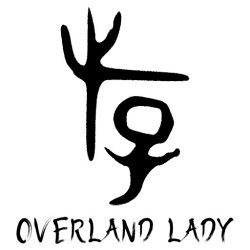I was introduced to this book through reading The Truth by Neil Strauss. It is a clinical psychology tool book which doesn’t seem to be an entertaining read. And it’s not. I flipped through the book with a heavy heart as I discovered the deepest, darkest root cause of my commitment problem and inability to experience intimacy in a relationship.

Have you ever wondered how and why people are so different in relationships? Do you stay in a relationship out of pity? Do you find all your partners unable to fulfill your wants? Do you think no one is ever good enough for you? Have you ever felt unable to enjoy close intimacy?
In Silently Seduced, Kenneth M. Adams, Ph.D. uses real-life cases, explains how childhood trauma affect sexuality, intimacy, and relationship.
Our emotional ability in adulthood may be the result of our relationships with parents during childhood. When certain emotional needs cannot be met through the spouse, the child often become the primary resource for such demand. In other words, the parent makes the child turn into his/her partner.
“Covert Incest“
Often referred to as emotional incest, is when the child becomes the object of a parent’s affection, love, and passion. The parent uses the child to fulfill his or her emotional needs that were not met by the partner. Although no sexual interaction is involved, the relationship between the parent and the child is much like a psychological marriage – where the child becomes the parent’s surrogate spouse.
Adam segmented the outcomes of these children by Male and Female. I personally think this gender-based analysis is too narrow to cover everyone’s situation, especially with the “modern” queer culture. As a girl (biologically), I sometimes can relate to what was described under a male patient.
However, since I’m only using the book as a general guideline, I’ll follow the chapters listed by Adams.
Male:
1. Mom’s Little Man
Childhood: standing up for mom, taking care of mom as if he was the husband, toughen up when difficulty comes, and taking charge in any form of help.
Kid who grew up as “the man of the house” become emotionally unavailable for intimacy. they often hide pain and suffering behind an arrogant, boastful facade. The development of emotionally fulfilled was interrupted during childhood which caused its absence in adulthood.
As he grows up, the feelings suppressed in childhood often find their way out through one’s personality and defensive behaviour. These feelings make it difficult to be comfortable with closeness and intimacy as an adult because the mother is considered as primary partner.
2. Mama’s Boy
Childhood: mom’s overprotection, over-closeness, special pampered treatment.
Man like this learnt that if he play cute, little-boy role, women will “come on” to him wanting to protect him like his mother did. He became addicted to sexual behaviour to distract from the pain of the mother’s seduction – he uses women as objects to “use”.
3. The Prince
Childhood: as the title suggested, being treated as the prince; overprotection and praised.
Man like this grow up being “womanizer”, trying to gain control or power over women, seeing women as trophies. Sharing intimacy is frightening and avoided at all cost.
4. Mom’s Confidant and Advisor
Childhood: solving mom’s problem, comforting mom when she was in bad mood, play a surrogate husband role and counselling the mother, ensure her she is loved.
Man like this appears to be helping others competently. Underneath, in fact, is fully of feelings of neglect, resentment, and fear. Always being there for others is a way of gaining their self-esteem due to worthlessness. They hope that soon they will feel worthy and have their own needs met after helping others first.
Female
Women with the following childhood traumas are always on the lookout for someone to “love her like her daddy did”. She searches for the perfect partner to fill the extreme neediness and emptiness of the lonely little girl inside of her. She creates similar situation in an effort to correct the experience and to get the needs met that were unmet in childhood.
1. Daddy’s Special Love
Childhood: Receive special attention from her father. Seduced by her father as a way to fight the wife’s anger. When the marriage was not happy, the wife’s anger and pain about the husband is usually strong. However when the husband use the daughter as a middle person, that anger comes second, after the importance of competing with the daughter for his attention. (This is a little tricky to understand. What a strategy a man can use to deal with his wife…)
Adulthood: Create romantic illusion. Falls in love with the romantic fantasy instead of the man. Tend to “chase the man away” because no man fit that perfect figure in her fantasy. Seductive pattern with strong demand in the man due to her emptiness.
2. The princess
Childhood: Specially adored by her father. On the outside, she seems to have it all. Seldom held accountable for any misbehaviour. Her father’s indulging love seems more like towards a mistress.
Adulthood: Unsatisfied with any man she had married. She might meet someone she thought was the one, but soon the man will not be good enough anymore. She believes that the man need to do or change something to fulfill her happiness. The dissatisfaction is actually about her own emptiness.
3. Father’s Love and Mother’s Surrogate Husband
Childhood: Plays a surrogate spouse character to both parents. Comfort the mother and take care of her emotions. Holds a special place from her father’s side as well. Listen to complains from both side. Feel like the reason of the parents stay married.
Adulthood: Result in a loss of clear identity under a deep sense of unworthiness and inadequacy. Although, from the outside, she looks like she can handle everything and even take care of others. However, there is great pain in the experience of self. She struggle with her femininity and feel conflicted and guilty when attempting a relationship with a man. She experienced totally different types of men while still unclear of her identity. She recreate the relationship with her mom while she date based on pity, guilt, and obligation; recreate the relationship with her dad while she always try to satisfy the man.
And this... is what my story falls into.
The Struggle to Commit:
Since perfection is not possible, never feeling satisfied is a chronic emotional response in relationship. This restrict the ability to make full emotional commitment to a relationship.
Having been emotionally abandoned in the incestuous relationship, makes her blame herself for failure and search herself for fault. She hopes to find out what is wrong and change to make it work.
When relationship with dad incestuous, he never approved any of the men around her. She feels smothered by him and wants to run. And that’s usually what she will do, get divorced or break-up. She runs aways from the commitment when a relationship becomes too intimate. She feels trapped being in a relationship too close, just like what her dad had with her. After running away from one relationship, she uses the old illusion of finding the perfect partner to mask the pain and justify the withdrawal.
One of the consequences of this is feeling objectified and used, not loved. She struggles to believe that she is worthy of being loved. This makes committing to and loving someone else difficult.
Adams touched on how to fix this trauma result:
She should separate from relationship, not the inner conflict. The unresolved grief from previous attachment contributes to the ambivalence of commitment.
I assume this means embrace the emotion and let it fill into the heart, try to be filled by intimate love…. Sounds easy, so hard to do…
And last words to light up some hope:
Happiness is a byproduct of a life lived with meaning and not attainable by pursing it directly. By fully investing in our lives and finding meaning, we can certainly be assured of some happiness.
